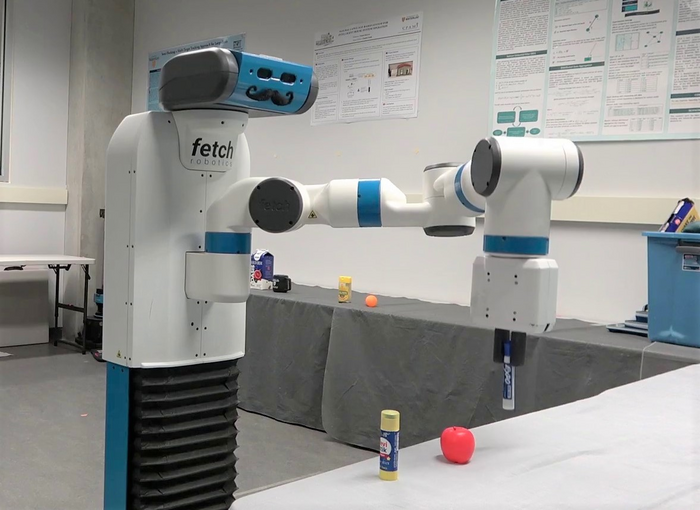Researchers say their customized robot will find lost items within the home, including medication, car keys, phones, and even the remote control to the TV.
Designed as a tool to aid folks with dementia and their caregivers in finding everyday items that are lost over and over again, the creators of the new “finder robot” say that the goal of the technology is to one day expand it to non-disabled users who are tired of losing the same items over and over as well.
Alexa, Where Are My Car Keys?
Artificial intelligence is increasingly becoming part of our everyday lives. The same goes for robotics, including things like robotic food delivery drones, self-driving cars, and automated fast food restaurants that are already on the horizon. Still, systems that employ both AI and robotics working together have been slower to come to the marketplace.
Now, a team of researchers from the University of Waterloo says their specialized designed robot will find lost items using artificial intelligence and a camera and that it is surprisingly effective at its job.
Customized Fetch Manipulator Robot Will Find Your Phone
The developers of the new, customized super-finder robot say that their initial motivation was to aid dementia patients who lose everyday items over and over again, dramatically reducing their quality of life.
“(We were) struck by the rapidly rising number of people coping with dementia, a condition that restricts brain function, causing confusion, memory loss, and disability.,” the team explains in the press release announcing their new robot. “Many of these individuals repeatedly forget the location of everyday objects, which diminishes their quality of life and places additional burdens on caregivers.”
To build their super finder, the team started with a “Fetch” manipulator robot, which has a camera to see the things around it. Then they upgraded it with an object-detection algorithm and programmed the robot to “detect, track and keep a memory log of specific objects in its camera view” by storing it on video. This process allowed the robot to store when and where objects left its field of view and became “lost.”
The researchers also developed a graphic interface that can operate on a smartphone or tablet, allowing users to simply tap a picture of what they want to locate. By stitching all of these elements together, the researchers, who presented their findings at the 2023 ACM/IEEE International Conference on Human-Robot Interaction, say they have “succeeded in using artificial intelligence to create a new kind of artificial memory.”
There is no detail on how successful the robot was at finding lost items, but the press release notes that tests have shown the memory-enhanced robot “is highly accurate” when it comes to finding items lost by its users.
Of course, the inventors concede that even the simple phone interface may be difficult for some with dementia to use. But the team leader, Dr. Ali Ayub, a post-doctoral fellow in electrical and computer engineering, said that “caregivers could readily use it.”
“The long-term impact of this is really exciting,” said Ayub. “A user can be involved not just with a companion robot but a personalized companion robot that can give them more independence.”
Robot to the Rescue for Everyday Folks Who Are Constantly Losing Things
Although the initial goal of the system was to help people with dementia or other conditions that make it difficult to remember where they last placed everyday items, Ayub and his team say they do plan to “conduct user studies with people without disabilities.”
This means that, if successful, everyone who can’t remember where they last saw their reading glasses or the TV remote may finally receive some help, robot style.
Christopher Plain is a Science Fiction and Fantasy novelist and Head Science Writer at The Debrief. Follow and connect with him on Twitter, learn about his books at plainfiction.com, or email him directly at christopher@thedebrief.org.

